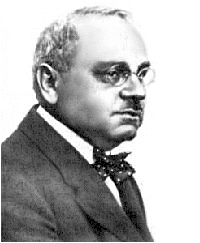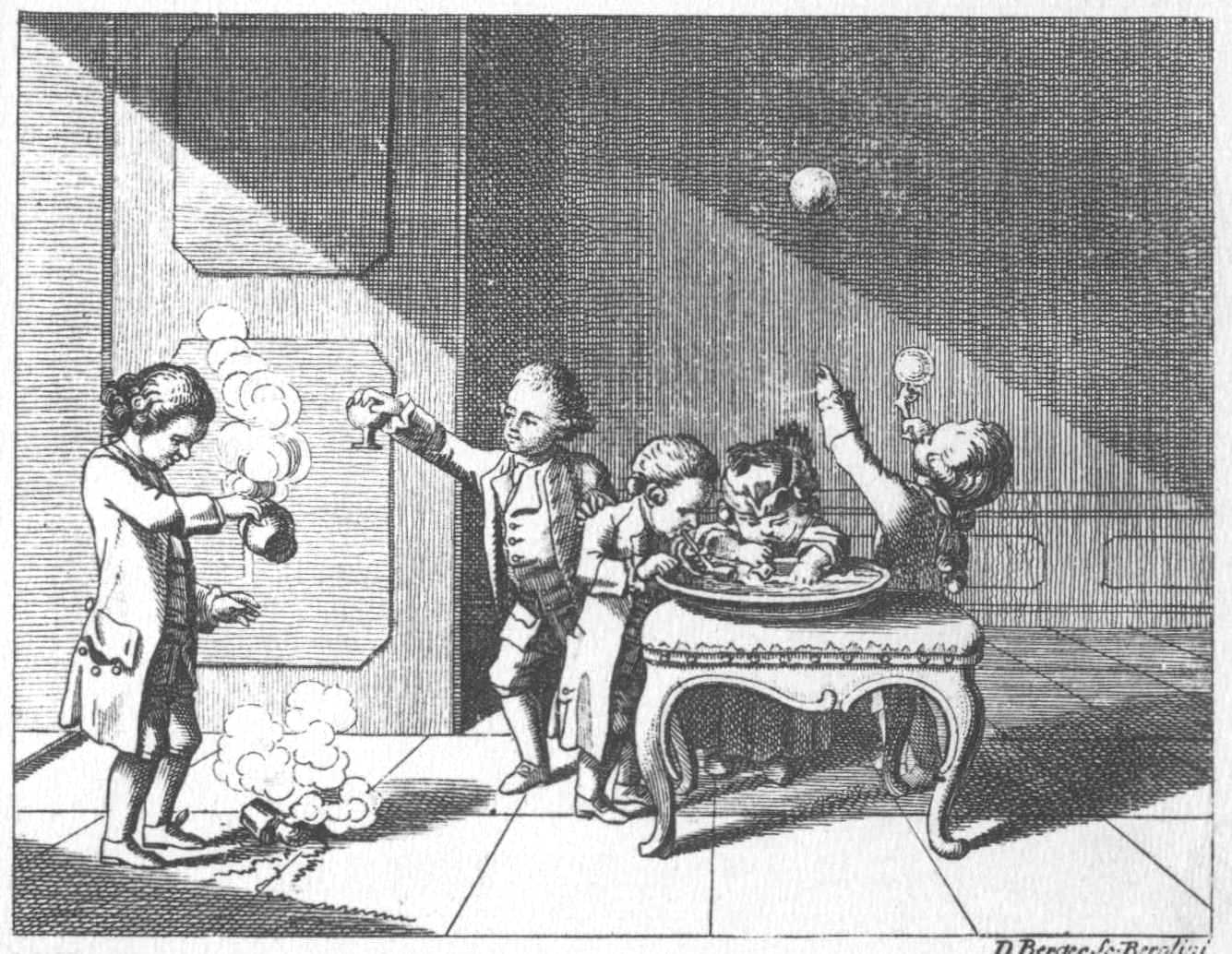|
Class Council
The term class council is derived from the classroom assembly ("Réunion coopérative", "Conseil") of Freinet pedagogy. Freinet did organize the class like an (agricultural) cooperative society. Much like the farmers organize cultivation and marketing of their products together in a cooperative the pupils plan and organize learning themselves. The class council is an agency of self-determination in which all pupils participate with equal rights. An alternative model of the class council is based on work of Rudolf Dreikurs, a pupil of Alfred Adler. Dreikurs developed the class council based on individual psychology and without reference to Freinet pedagogy as an instrument of problem solving and mediation but not as an agency of self-determination. In Freinet pedagogy Tasks and fields of activity The class council can: * deliberate on excursions. * deliberate on teaching methods. * deliberate on subject matter. : The intent is to prom ... [...More Info...] [...Related Items...] OR: [Wikipedia] [Google] [Baidu] |
Célestin Freinet
Célestin Freinet (, 15 October 1896 in Gars, Alpes-Maritimes – 8 October 1966 in Vence) was a noted French pedagogue and educational reformer. Early life Freinet was born in Provence as the fifth of eight children. His own schooldays were deeply unpleasant to him and would affect his teaching methods and desire for reform. In 1915 he was recruited into the French army and was wounded in the lung, an experience that led him to becoming a resolute pacifist. In 1920 he became an elementary schoolteacher in the village of Le Bar-sur-Loup. It was here that Freinet began to develop his teaching methods. He married Élise Lagier in 1926. Educational reforms In 1923 Freinet purchased a printing press, originally to assist with his teaching, since his lung injury made it difficult for him to talk for long periods. It was with this press he printed free texts and class newspapers for his students. The children would compose their own works on the press and would discuss ... [...More Info...] [...Related Items...] OR: [Wikipedia] [Google] [Baidu] |
Rudolf Dreikurs
Rudolf Dreikurs (February 8, 1897, ViennaMay 25, 1972, Chicago) was an Austrian psychiatrist and educator who developed psychologist A psychologist is a professional who practices psychology and studies mental states, perceptual, cognitive, emotional, and social processes and behavior. Their work often involves the experimentation, observation, and explanation, interpretatio ... Alfred Adler's system of individual psychology into a pragmatic method for understanding the purposes of reprehensible behaviour in children and for stimulating cooperative behaviour without punishment or reward. He suggested that human misbehavior is the result of feeling a lack of belonging to one's social group. When this happens the child acts from one of four "mistaken goals": undue attention, power, revenge or avoidance (inadequacy). His overall goal was that students would learn to cooperate reasonably without being penalized or rewarded because they would feel that they are valuable contrib ... [...More Info...] [...Related Items...] OR: [Wikipedia] [Google] [Baidu] |
Alfred Adler
Alfred Adler ( ; ; 7 February 1870 – 28 May 1937) was an Austrian medical doctor, psychotherapist, and founder of the school of individual psychology. His emphasis on the importance of feelings of belonging, relationships within the family, and birth order set him apart from Freud and others in their common circle. He proposed that contributing to others (social interest or ) was how the individual feels a sense of worth and belonging in the family and society. His earlier work focused on inferiority, coining the term inferiority complex, an isolating element which he argued plays a key role in personality development. Alfred Adler considered a human being as an individual whole, and therefore he called his school of psychology "individual psychology". Adler was the first to emphasize the importance of the social element in the re-adjustment process of the individual and to carry psychiatry into the community. A ''Review of General Psychology'' survey, published in 2002, rank ... [...More Info...] [...Related Items...] OR: [Wikipedia] [Google] [Baidu] |
Individual Psychology
Individual psychology () is a psychological method and school of thought founded by the Austrian psychiatrist Alfred Adler. The English edition of Adler's work on the subject, '' The Practice and Theory of Individual Psychology'' (1924), is a collection of papers and lectures given mainly between 1912 and 1914. These papers provide a comprehensive overview of psychology and emphasizing the indivisible unity of the personality. In developing individual psychology, Adler broke away from Freud's psychoanalytic school. While Adler initially termed his work "free psychoanalysis", he later rejected the label of "psychoanalyst". His method, which involved a holistic approach to character study, was highly influential in late 20th-century counseling and psychiatric strategies. The term "individual psychology" refers not only to the individual but also to the patient as an indivisible entity. Adler stated that one must consider the patient's entire environment, including their social c ... [...More Info...] [...Related Items...] OR: [Wikipedia] [Google] [Baidu] |
Teaching Method
A teaching method is a set of principles and methods used by teachers to enable student learning. These strategies are determined partly by the subject matter to be taught, partly by the relative expertise of the learners, and partly by constraints caused by the learning environment. For a particular teaching method to be appropriate and efficient it has to take into account the learner, the nature of the subject matter, and the type of learning it is supposed to bring about. The approaches for teaching can be broadly classified into teacher-centered and student-centered, but in practice teachers will often adapt instruction by moving back and forth between these methodologies depending on learner prior knowledge, learner expertise, and the desired learning objectives. In a teacher-centered approach to learning, teachers are the main authority figure in this model. Students are viewed as "empty vessels" whose primary role is to passively receive information (via lectures and di ... [...More Info...] [...Related Items...] OR: [Wikipedia] [Google] [Baidu] |
Citizenship Education (subject)
Citizenship education is taught in schools, as an academic subject similar to politics or sociology. It is known by different names in different countries – for example, 'citizenship education' (or just 'citizenship' for short) in the UK, ‘civics’ in the US, and 'education for democratic citizenship' in parts of Europe. The different names for the subject is mirrored in the different approaches towards citizenship education adopted in different countries. These are often a consequence of the unique historical and political developments within different countries. In many countries, the focus of the teaching is on active citizenship. The purpose of "active citizenship" is to teach students to work together and take practical action, using their citizenship knowledge and understanding to contribute to a better society. For example, after learning about human rights, diversity and inequality, students might decide to set up a project to address racism in their school or lo ... [...More Info...] [...Related Items...] OR: [Wikipedia] [Google] [Baidu] |
Job Rotation
Job rotation is the lateral transfer of employees between jobs in an organization without a change in their hierarchical rank or salary grade. Rotated employees usually do not remain in these jobs permanently and may also not return to former jobs. The frequency and duration of intervals in a job rotation can vary widely from daily to periods of years. The practice serves several functions including staffing, employee motivation, managing employee fatigue, employee orientation and placement, and career development. Job rotation is used systematically by a large number of companies. This can be through structured job rotation programmes, or informally though the frequent lateral transfers that occur in organizations. Rotations are more common among lower performing staff who don’t generally achieve sizeable performance gains after a rotation. The rotation of higher performing staff is less prevalent, but has been shown to be beneficial for them with sizeable performance increases w ... [...More Info...] [...Related Items...] OR: [Wikipedia] [Google] [Baidu] |
Agenda (meeting)
An agenda is a list of meeting activities in the order in which they are to be taken up, beginning with the call to order and ending with adjournment. It usually includes one or more specific items of business to be acted upon. It may, but is not required to, include specific times for one or more activities. An agenda may also be called a docket, schedule, or calendar. It may also contain a listing of an order of business. Etymology ''Agenda'' is an abbreviation ''agenda sunt'' or ''agendum est'', gerundive forms in plural and singular respectively of the Latin verb ''ago, agere, egi, actum'' "to drive on, set in motion", for example of cattle. The meaning is "(those things/that thing) which must be driven forward". What is now known in English as an ''agenda'' is a list of individual items which must be "acted upon" or processed, usually those matters which must be discussed at a business meeting. Although the Latin word is in a plural form, as a borrowed word in English, th ... [...More Info...] [...Related Items...] OR: [Wikipedia] [Google] [Baidu] |
Bulletin Board
A bulletin board (pinboard, pin board, noticeboard, or notice board in British English) is a surface intended for the posting of public messages, for example, to advertise items wanted or for sale, announce events, or provide information. Bulletin boards are often made of a material such as Cork (material), cork to facilitate addition and removal of messages, as well as a writing surface such as blackboard or whiteboard. A bulletin board which combines a pinboard (corkboard) and writing surface is known as a combination bulletin board. Bulletin boards can also be entirely in the digital domain and placed on computer networks so people can leave and erase messages for other people to read and see, as in a bulletin board system. Bulletin boards are particularly prevalent at universities. They are used by many sports groups and extracurricular groups and anything from local shops to official notices. Dormitory corridors, well-trafficked hallways, lobbies, and freestanding kios ... [...More Info...] [...Related Items...] OR: [Wikipedia] [Google] [Baidu] |
Wall Newspaper
A wall newspaper or placard newspaper is a hand-lettered or printed newspaper designed to be displayed and read in public places both indoors and outdoors, utilizing vertical surfaces such as walls, boards, and fences. Usage in Communist states Soviet Russia and Soviet Union During the Russian Revolution of 1917 and the Russian Civil War, which followed, the use of wall newspapers came into vogue in Soviet Russia. These so-called "placard newspapers" are said to have begun due to a chronic shortage of newsprint paper resulting from war conditions, blockade, and economic dislocation."Placard Newspapers", ''Russian Review'', vol. 3, no. 8 (15 April 1925), p. 183. The papers were first used in military barracks as a means of disseminating official government information, but their use was soon common in factories, schools, and other locations where large numbers of people congregated. These wall poster newspapers soon came to be seen as efficient vehicles for publicity and propag ... [...More Info...] [...Related Items...] OR: [Wikipedia] [Google] [Baidu] |
Oligarchy
Oligarchy (; ) is a form of government in which power rests with a small number of people. Members of this group, called oligarchs, generally hold usually hard, but sometimes soft power through nobility, fame, wealth, or education; or through corporate, religious, political, or military control. Throughout history, power structures considered to be oligarchies have often been viewed as coercive, relying on public obedience or oppression to exist. Aristotle pioneered the use of the term as meaning rule by the rich, contrasting it with aristocracy, arguing that oligarchy was a corruption of aristocracy. Types Minority rule The consolidation of power by a dominant minority, whether religious or ethnic, can be considered a form of oligarchy. Examples include South Africa during apartheid, Liberia under Americo-Liberians, the Sultanate of Zanzibar, and Rhodesia. In these cases, oligarchic rule was often tied to the legacy of colonialism. In the early 20th ... [...More Info...] [...Related Items...] OR: [Wikipedia] [Google] [Baidu] |
Student Council
A student council (also known as a student union, associated student body or student parliament) is an administrative organization of students in different educational institutes ranging from elementary schools to universities and research organizations around the world. These councils exist in most Public school (government funded), public and private school, private K-12 school systems in different countries. Many universities, both private and public, have a student council as an apex body of all their students' organisations. Student councils often serve to student engagement, engage students in learning about democracy and leadership, as originally espoused by John Dewey in ''Wikisource:Democracy and Education, Democracy and Education'' (1917). Function The student council helps share ideas, interests, and concerns with teachers and institute administrative authorities. It also helps raise funds for school-wide activities, including social events, community projects, help ... [...More Info...] [...Related Items...] OR: [Wikipedia] [Google] [Baidu] |





